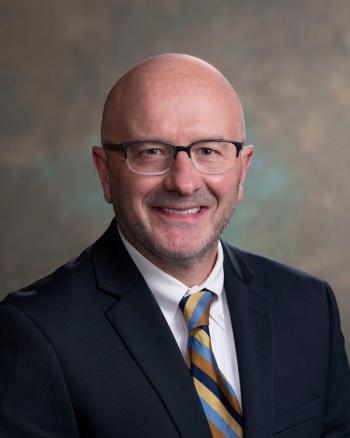
Clinicians' thoughts on the future of COVID-19
Are we prepared for future waves of the virus? Physicians and advanced practitioners are unsure.
The world has been battling the COVID-19 pandemic for nearly a year. As the numbers of infections and deaths continue to surge across the United States, we have finally received hopeful news: vaccines are on the horizon. Vaccines may certainly help protect patients and alleviate the hardship of COVID-19 on healthcare systems, but they will not eliminate the virus or its often tragic repercussions. Even if every person who can safely receive the vaccine takes it when it is widely available, we will still be dealing with the impact of the pandemic for quite a while. And with cold and flu season already in full swing, the question remains: are we prepared for COVID-19 surges this winter?
In September of 2020, LocumTenens.com surveyed physicians and advanced practitioners about their thoughts on the pandemic and the country’s preparedness for future waves as part of its
Those who do think we will be prepared believe we have come a long way in our understanding of the virus. Although its long-term effects are still not well known, we have a better idea of best practices for prevention and treatment. These respondents partially credit their belief to enhanced safety measures and equipment, but clinicians generally remain torn about whether they think they will have enough PPE if cases continue to increase at the rate they have been. Forty-two (42%) percent of respondents do believe they will have access to enough PPE, but 58% are either unsure or do not think they will. One family practice physician assistant from the Southwest explains, “I think the hospitals will be more prepared from a standpoint of understanding treatment options better but not from a PPE or facility space standpoint, and the general public will likely not take the precautions as seriously.”
A psychiatrist from the Southwest provides an alternative viewpoint: “Patients and the general public are already educated about how to reduce risks. We have supplies or access is more manageable for PPE.” Throughout the pandemic, the burden of education about the virus has largely fallen to clinicians, many of whom have found themselves playing the role of a teacher to their patients more so than ever before.
When asked whether patients are taking the pandemic seriously and whether misinformation about the virus is an issue, the word “education” was among the most frequently used. “I am concerned with certain patients. I believe most have adequate information, but I disagree with the conclusions they draw from it. The issue is to try to convince them of the serious consequences even if they aren't very likely,” shares a general surgeon from the Midwest. Despite clinicians’ best efforts, education will never be enough if the knowledge shared is not put into practice.
Lack of federal leadership and consistency of healthcare guidelines, as well as the complacency of the public were among the top reasons some respondents do not think we will be prepared to handle COVID-19 surges this winter, but there is also the issue of healthcare insurance. When LocumTenens.com
“Until everyone accepts that there is no going back to normal until we have a viable vaccine,” explains an emergency medicine physician from the Southwest, “we are doomed to see a cyclical regression back and forth between excess disease burden and improved patient numbers.” Although it might be easy to believe best practices for prevention are second nature to the public at this point, it is imperative clinicians continue to both educate and reiterate to their patients the importance of doing everything they can to stop the spread of the virus, if not for their own health, but for the health of emergency departments across the country.
About the Author
Diana Adler is SVP of Hospital Medicine at LocumTenens.com. LocumTenens.com is a member of NALTO®, the only professional association of temporary physician staffing firms committed to a code of ethics and to maintaining the highest industry standards.
Newsletter
Optimize your practice with the Physicians Practice newsletter, offering management pearls, leadership tips, and business strategies tailored for practice administrators and physicians of any specialty.






